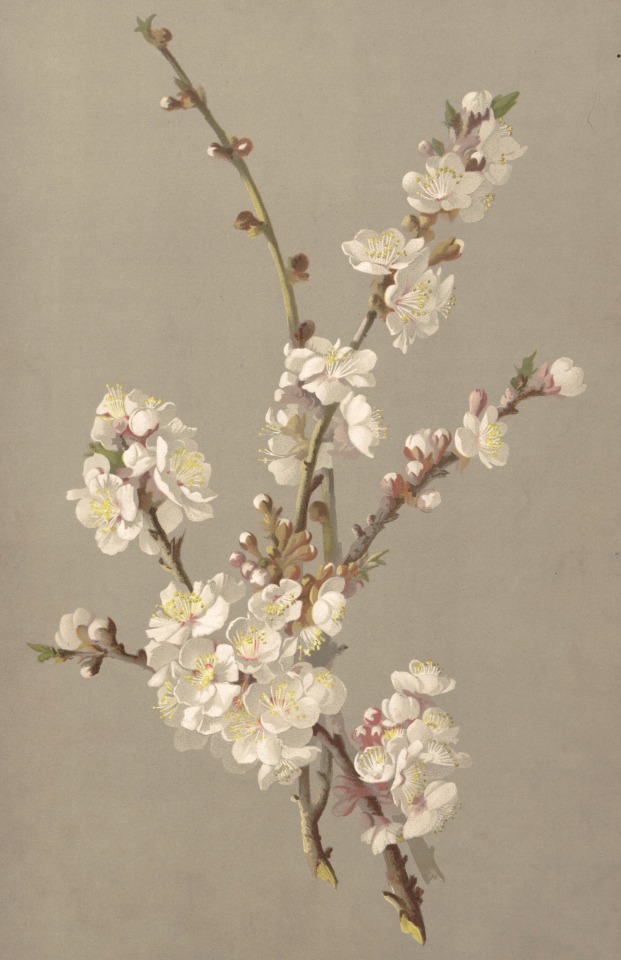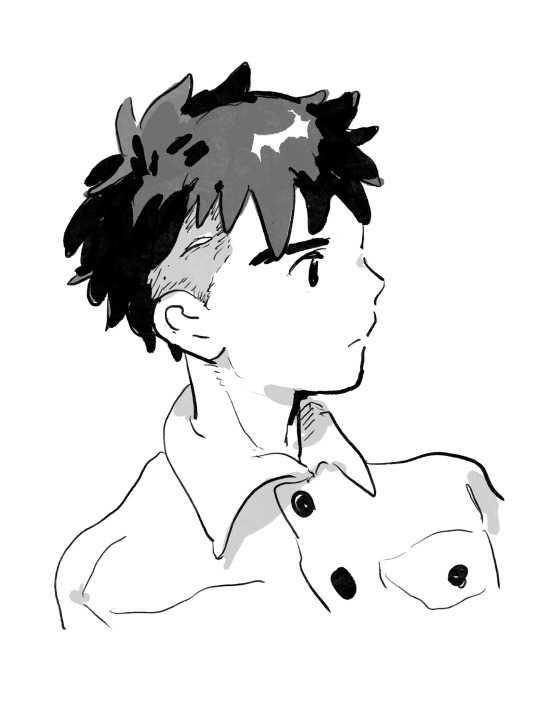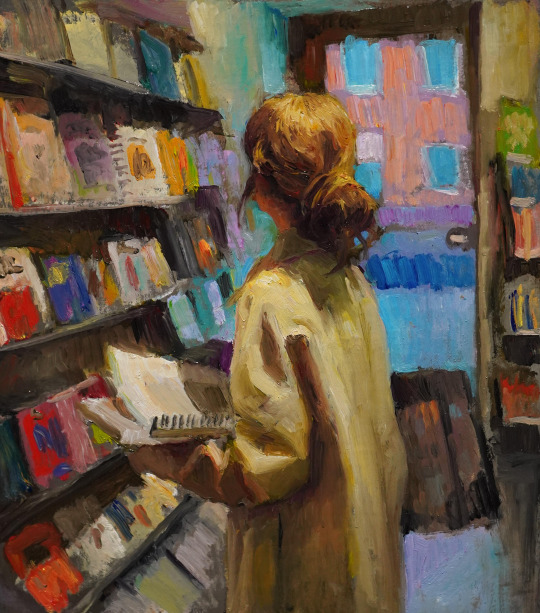Text






Solar Eclipse Shadows
These solar eclipse shadows form due to the distance between the sun and the leaves on the trees. The distance and the proximity of the leaves to one another cause for a "lensing" type effect, making the eclipse shadow clearer to the human eye.
57K notes
·
View notes
Photo

Blütenzweige - Émile Arnold Vouga - 1885 - via Sachsen Digital
1K notes
·
View notes
Text
Writers suffer from tinker bell brain they need constant applause or they start believing everything they’ve written is horseshit
18K notes
·
View notes
Text
like literally if i didn’t want to see some weird nonsense i wouldn’t be consuming scifi
22K notes
·
View notes
Text

Poster spotted in Hobart / Lutruwita
#art#politics#everything was pretty chill last night#until i logged on to twitter and saw all of the Iran stuff#it would be really great if everything would just calm the hell down#i mean#what is the point of all this? honestly? really?#all the majority of people want is to live nice and calm and safe lives#why is it only the small minority who don't want that the ones who get to be in charge?
886 notes
·
View notes
Text

Guess who came in from left field and took the crown as my fav Doctor T-T
Reblogs are very appreciated <3
Tag list (DM me to join):
@mcganns @ursusarctosh @dukeoftheblackstar @poisonedyouth @saga-ordsmed @rt-d00-t @milf-maul @brother-genitivi @stand-up-and-screamo @thechaoticfanartist
317 notes
·
View notes
Note
Replies are restricted on this post, so I'm gonna do this here.
The above is definitely good advice; HOWEVER, when I read Anon's comment I actually didn't see what the problem was. Because yes, genre fiction does follow certain conventions, just like "literary" fiction follows its own conventions, and having an understanding of what they are, and what their purpose is, and how they work is just a general good thing.
BUT
Honestly, write whatever you want. If your writing tends towards being character-focused, then write that character-focused sci-fi. Write that contemplative fantasy. Just because you're writing genre fiction doesn't mean you have to make your story plot heavy just because that's what the genre tends to do (or rather, often, what the genre is stereotyped as doing). Labels like "literary" and "genre", and all the assumptions that go with them, are pretty bogus, anyway, as something being "genre" does not mean it also isn't deep and serious and able to render rich characters or examine complex ideas. I've read and watched enough to know that really, the differences between "genre" and "literary" fiction usually only lie in the superficial details, like whether the story has wizards or not. Aside from that, both types of fiction can do exactly the same thing.
So yes, it's good to understand the conventions of the genre you want to write in, but don't let that stop you from writing the stories that you like. At the end of the day, this is art. It's all made up, anyway.
Hi!
I recently decided I want to write genre fiction. I have ideas and would love to try. But I have come to realize that my writing is just naturally literary leaning. Very character focused, and internally driven more than anything. Sometimes a bit passive. I was wondering, if you had a student who was the same way, how would you direct them to learn to get better at the external conflicts and the various genre conventions?
reverse outline everything. buy a really fancy notebook and a nice pen, and take down notes about every story you encounter, especially ones in the genre you'd like to write in. tv shows, movies, books, video games, everything. make a bullet point list of Things That Happen. when the story is over, review your notes and highlight the inciting incident, moments of rising action, the climax, and the resolution. notice also *when* these things happen, at what percentage of the story. find an existing structure you like, say the three-act play, and draw lines between the bullet points that signal the end of each act. draw major conclusions about the way every story works. avoid criticism; practice neutral observation. if you find a movie you like, read the script. annotate the hell out of your books. articulate and witness your own perspectives of narrative.
when you reverse outline habitually, you start to internalize story structures and deploy them more easily and intentionally. you start seeing patterns in cause and effect, events that are expected or unexpected, plot beats that aim to satisfy or disappoint. and even if you're only noticing and jotting things down, your observations will naturally, eventually, bleed into your own work.
#writeblr#writing#books#fiction#scifi#fantasy#genre fiction#horror#criticism#analysis#advice#writing advice#brought to you by someone who has read and watched a lot of stuff#on both sides of the aisle#and frankly#why would you want to make your writing conform to what is already out there?#variety in any genre is an amazing thing
38 notes
·
View notes
Text
steven moffat is writing an episode for new doctor who and i am filled with RAGE
#Doctor Who#Steven Moffat#double-checked this on twitter#it's true#ugh#as i said over there#i had the idle thought#“watch the new Doctor Who have Moffat back as a writer”#“even though a woman/writer of colour/newbie/etc. would be better served by the opportunity”#and whomp there it is#the guy ran the damn show#and wrote for every RTD series#and his episodes were fine but not genius#let someone else have a chance goddamn#and let me be excited for this series without caveats#christ on a triscuit
8 notes
·
View notes
Text
it's kind of crazy climate change has occurred at such a remarkable pace that I and everyone else around my age can remember a completely different climate in our childhoods. I truly watched winter gradually disappear in my life.
#climate change#global warming#environment#environmentalism#although i'm not the biggest fan of winter#(although i do love knitwear)#this year has been so unsettling#warmest on record apparently#this is not good guys
85K notes
·
View notes
Text

Sesshōmaru-sama.
2/2 of my pieces for the Daiyokai Deck project which unfortunately went on permanent hiatus. These pieces were originally intended as a pair, the front and back illustrations for the project booklet.
537 notes
·
View notes
Text
I don't think we give Doctor Who enough credit for being a rare franchise that lets adults be whisked away on a portal fantasy adventure.
In most of these types of stories, you age out of being an appropriate protagonist. But the first two companions were a pair of fully-adult schoolteachers. Now, there's a template of a companion being a woman in her early twenties, but there's still potential for a broader range of ages. Anybody can stumble through that door and be whisked on an adventure--and be traumatized six million ways, sure, but it's nice to be included.
#Doctor Who#criticism#analysis#ageism#lol#i think i talked about this over on twitter#but i do hope that we get that broader age range that OP mentions with future companions#yeah RTD might be doing a bit of a callback to his first Doctor Who run#with the blonde nineteen-year-old woman#but i hope he mixes it up#i haven't watched any of Thirteen's run#but i did like that one of the companions was older#and i loved that Donna was in her thirties#(which i love even more now that i'm in my thirties)#but like#let's have companions in their 40s and 50s#have the directionless empty nester#the retiree#the woman who's just been layed off from the job she spent 15 years at and is yearning for an escape#Doctor Who companions tend to be a little directionless#and that can happen at any age#but also like#i'd love companions with a start more like Tegan's#stumbles into the TARDIS and keeps getting dragged into adventures against their will#i think the companion formula needs more of a refresh
8K notes
·
View notes
Text

425 notes
·
View notes
Text

Scene study#7, by Thomas Ngan.
5K notes
·
View notes
Text
I had a tattoo client ask if I ever used AI to design tattoos for me. Man I spent the better part of a decade doing shitty bit work as a graphic designer and now that I have the space to do whatever I want, I'm gonna let the computer generate random garbage for me? What next should I have a computer that eats my dinner and fucks my wife?
85K notes
·
View notes
Text
In grad school, I sometimes workshopped the same book chapters in class that I was going over with my advisor, and one of the really fascinating dichotomies was that (if I'm remembering right) my classmates thought that the characters should know how the sci-fi technhology worked, while my advisor loved that the characters didn't.
And personally, I think my advisor was right on this one. Because as said above, if someone asked me how a TV or laptop or iPhone worked, I could maybe say a couple of things about them. Or like, I know vaguely how old TVs worked, with tubes and projection, but I couldn't tell you how my Smart TV does what it does. I'd have to look this stuff up. If I was in tech, I could probably tell you more, but there would still be gaps in my knowledge.
So yes, knowing how technhology or magic works in your sci-fi/fantasy world can be good, but the level of knowledge totally depends on your characters, as well as how rare or ubiquitous the magic/tech is. "I don't know." or "I dunno, energy or something." are totally valid responses to "how does it work?".
Technology really is magic. I know that’s said a lot but like I’m sitting here looking at one of those chargers that you put your phone on top to wirelessly charge. And today is the first time I’ve really looked at it and gone “truly how the fuck does this work”
Maybe we stress about fantasy worldbuilding too much. We’re like “oh we gotta know the rules of the magic system,” no you don’t. I don’t know the rules of our magic system. If Aragorn, son of Arathorn got hit by a truck that orcs and goblins were driving flintstone style, and he transmigrated into my living room, I would not be able to explain any of the technology around me. I have no idea how I’m making this post. Imagine the first caveman who was like “oh shit the wheel” and I’m nodding along with that cave man. I understand how the wheel can roll. This next sentence was supposed to be about how I can sort of grasp how landline telephones work, but then I thought about it and no I don’t. I am surrounded everyday by mystical forces.
Anyway I have to use this particular charger because this miracle machine’s charging port is fuckin broken again
20K notes
·
View notes
Text
oops, i did it again: a second doctor who analysis
In my last "back on my Doctor Who bullshit" post, I talked about how "Journey's End" is overstuffed and doesn't really work as a satisfying companion exit, and I want to expand on that a little bit. Because while I liked "Stolen Earth/Journey's End" fine when it aired, years later, I find that it's the least successful of RTD's four primary series finales. (Yes, the finale where the Doctor has a sparkly Jesus moment somehow works better than "SE/JE".)
Buckle up.
In the RTD years, series finales seemed to follow very similar patterns, containing very similar elements:
The Doctor/Companion relationship features heavily
The companion saves the day in some way
There's a big conflict with a Big Bad
There's an exit (in "Parting of the Ways", it's the Doctor; in all other finales, it's the companion)
The finales of Series 1 and 2 follow this formula to the letter, and are probably the most successful and tightly written of the four series finales overall. As I said in my last post, Doctor Who is a very plot-forward show, but each finale maintains an excellent balance between the conflict/conflict resolution and the character moments, specifically the Doctor/Companion relationship and the things that go into the companion-forward conflict resolution. This balance also allows the exit to have weight and time. Everything in these two finales has room to breathe, and I don't remember wishing that we had more time to flesh anything out or answer more questions.
The Series 3 finale deviates from this formula, as it adds another element: a companion reunion. This addition could have botched the finale, as given the nature of the reunion, it wasn't just going to be a happy high-five that the characters could quickly move on from. A reunion with Jack came with baggage, and to unpack that baggage, RTD did the absolutely ingenious thing of giving the finale a third epsiode. The Series 3 finale is, essentially, a three-parter, with "Utopia" doing a lot of heavy lifting so "Sound of Drums/Last of the Time Lords" could maintain the usual finale focus. "Utopia" is probably one of my favourite episodes, as it's just so beautifully paced and utilises its time so well. Because not only does it function to reintroduce Jack and resolve some of the plot points from the Series 1 finale, but it introduces the Big Bad and sets up the main finale conflict. With that accomplished, the main two-part finale has plenty of time to address each of the usual finale elements, giving everything the weight and space it deserves. Like the first two series finales, there was really nothing that I remember needing fleshing out, even if the whole conflict resolution was a little silly.
The Series 4 finale tries to adopt a similar formula to Series 3, with "Turn Left" as its "Utopia", but it doesn't really work. Yes, "Turn Left" reintroduces a past companion and sets up the main conflict, with the stars going out, but it doesn't have a true Doctor/Companion reunion and doesn't introduce who the Big Bad is in a conrete way like "Utopia" does. Those two elements are put in the main two-part finale, and as a consequence everything is given less room to breathe, particularly the exits. Now, I love "Turn Left", and I wouldn't want to alter it to make it more like "Utopia". Getting a Donna-focused episode was great for her character, and I think having the audience be re-introduced to a Rose who has grown and changed away from the Doctor, ahead of the reunion, is incredibly important. What "SE/JE" needed was to either be longer, or to have a true third part finale episode--to then make the Series 4 finale, essentially, a four-parter.
Because while I do think that "SE/JE" resolved its plot well in the time it was alloted, it's ultimately the character work--the Doctor/Companion relationship, the companion saving the day, and the exit--that got the short stick. And that, I think, is down to Series 4 trying to juggle too many "main" characters.
One of the biggest strengths of the first three finales is that they know how to balance their main characters with their secondary and tertiary characters--they know who should be given the most attention to tell a satisfactory story. In Series 1 and 2, the Doctor and Rose are the main characters, so their arcs--their relationship--is given primary focus. Jack is a secondary main character, and he is treated accordingly: given an emotional exit, but one that doesn't take up more than a few minutes of screentime. Jackie and Mickey are also secondary main characters, and they are also given the appropriate amount of on-screen resolution. In Series 3, the Doctor and Martha (and to a lesser extent, the Doctor and the Master) is the main relationship, with Jack being a secondary main again and Martha's family being very much tertiary characters. Martha's growth as a character and her relationship with the Doctor is the main focus, followed by the Doctor/Master drama. Those two relationships and exits are given the most time, followed by Jack's quicker exit and a simple nod to Martha's family.
Series 4 doesn't seem to know how to juggle its characters. Donna and the Doctor are, ostensibly, the main characters, but Rose and the Rose/Doctor reunion is so tied to the plot and character arcs, that she is essentially a third main. Then you have Jack, Martha, Sarah Jane, Jackie and Mickey functioning as secondary mains, and then Luke, Francine, Wilf, Sylvia, Gwen and Ianto as tertiary mains, and my god, that's a lot of people. Where the first three finales were streamlined, keeping their focus on the two mains and making sure that they didn't add too many characters into the secondary/tertiary positions, Series 4 is cluttered. There's too many people to give screentime to, and too many backstories to address, and as a result most of the characters--even the Doctor and Donna--are criminally underutilised. Sure, Donna saves the day, but I don't feel that it's that great a moment or a satisfying resolution to her character arc, and the Doctor spends most of "Journey's End" standing around. Rose also just stands there (why she doesn't lay into Davros as he's pontificating still baffles me), and while Jack et al do have their moments, they mostly just Skype chat the whole time. The Series 4 conflict and conflict resolution is, I think, the weakest of the four, and doesn't really give anyone anything satisfying to do. This could have been excused if it worked as a character piece, but I don't think it does. Both the Doctor and Donna's characters get interrogated, but I don't remember feeling like they did that with sufficient depth or whether there was any moment of revelation. Consequently, it feels like most of the episode is killing time until it can get to the exits.
And then there are the exits. I talked in my last post about how the Series 4 exits have some glaring plot holes, and both the surplus of characters and the lack of time play a part. While I think it does give its tertiary characters appropriate exits, the exits of the secondary characters feel a little quick. Not only are there so many to send off in such a short timeframe, but you never see where those characters stand with the mains--specifically, Rose. Rose knows and has emotional connections to Sarah Jane, Jack and Mickey, and we have no idea whether they said goodbye knowing that they would never see Rose again. And we still don't, making this a lingering plot hole. As for the main characters, Rose's exit comes across as high-handed on the Doctor's part, displaying a frustrating lack of choice and communication, and while Donna's does work in some respects, it could have used more time to flesh out why taking her memories was the only option, and to give her a choice. Granted, both exits can be tied into the Doctor's journey towards the even more high-handed Time Lord Victorious, but when you disregard that, they aren't very satisfying on their own. At least for me. More time, or fewer secondary characters to see off, would have given the exits the opportunity to breathe. And it would have improved the pacing, giving each exit time to settle before we move onto the next one. I mean, there's only a couple of minutes between Rose's bittersweet exit and Donna's tragic one, which does Donna's a disservice. It feels less like an event, and more like a box to tick.
As a fan, I understand why the Series 4 finale is as messy as it is. It's RTD's last true finale before his swansong specials, a finale that is trying to wrap up his whole run with the characters he, and viewers, have come to love. Who knows if a future showrunner would bring back Martha or Sarah Jane; you want see these characters one more time, in case they don't. But as a writer, I wish he'd exercised more restraint. I love Jackie and Mickey, but did they need to be there? Did Francine? Or could Donna's exit not have been saved for the specials? Catherine Tate was clearly signed on to at least one of them; could Donna not have stayed with the Doctor, her mind slowly erroding, leading up to her memories being taken in "End of Time"? If she did, it would have left more time to dedicate to Rose's exit in "Journey's End".
Overall, I think Series 4 is the weakest of the RTD finales. While as a fan I did like seeing all these characters together, from a technical standpoint I wish RTD had stuck to his previous formula as, if he had, we would have got a much tighter, more satisfying story. As it stands, while it's fascinating to me why we didn't, I think "Stolen Earth/Journey's End" is always going to be my least favourite. Unless we get some kind of director's cut, I don't see that improving over time.
#Doctor Who#writeblr#my writing#Russell T Davies#criticism#analysis#will i be over Rose's exit and how unsatisfying it was?#no but life goes on#and in that life sometimes you write incredibly long analysis#i have multiple English degrees#i'm allowed to think like this about long-finished fiction
1 note
·
View note
